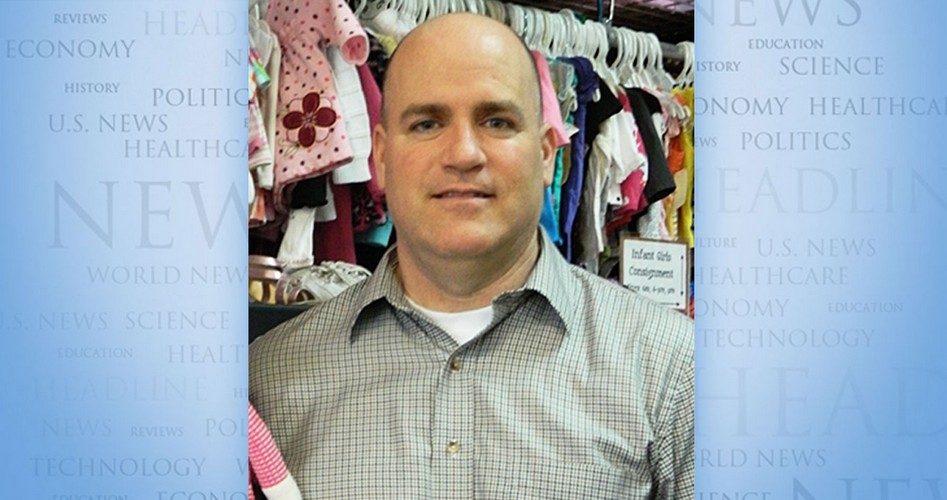
To Quote Mr. Worf: “One cannot regain honor by acting dishonorably.” Unfortunately, Seattle Mayor Ed Murray and the Seattle City Council appear to have missed that episode of “Star Trek — The Next Generation.” The mayor and many of the council seem to think there is some debt of honor they need to discharge toward the minimum and low wage workers of the city. In order to discharge this perceived debt and provide them a “living wage” of $15 per hour (a 62-percent increase from the current minimum wage of $9.32), they are willing to act dishonorably and steal money from others.
Does the word “steal” sound harsh? Sometimes the truth sounds harsh. In addition to my primary career of software consulting, which offers me a comfortable living, I also own a small retail shop in the greater Puget Sound area in the town of Gig Harbor. The community likes my shop, but the shop barely breaks even on pretty modest revenue. It has never paid me a dime, but I still take a certain amount of pride in it and enjoy providing the service to the community.
If the 62-percent minimum wage increase was enacted overnight in Gig Harbor, as openly socialist Seattle Council member Kshama Sawant desires in Seattle, there would be an immediate increase of roughly $24,000 for my yearly payroll related expenses (salary plus employment taxes). I would go from breaking even, struggling to survive, and living to fight another day, to completely under water and probably out of business (with the corresponding loss of four jobs). If thieves were to break into my shop and steal $24,000 of cash and/or merchandise, given my revenues, it would be a devastating blow. But somehow, if the local government were to do so with the stroke of a pen, it would be moral?
You’ve got to give some credit to the common street mugger — at least they’re honest in their thievery. The mayor, the City Council, and the other supporters of this movement try to disguise their theft in the trappings of democracy, and in so doing, secure themselves a spot well below that of “honest thieves” in the pantheon of shame. The platitudes that are put forth by the supporters of this proposal are childishly naive to say the least: “Just raise your prices!” Um, if I thought I could get $8 for the widget I currently have marked at $6, don’t you think I’d already have it marked at $8?
Or how about this one: “Raising the minimum wage to $15 per hour will pump $50 million (or whatever number) into the local economy.” This logical fallacy is pretty easy to defeat. It suggests we can just raise it up to $20 per hour and pump $100 million into the economy instead. While we’re at it, let’s go ahead and make it $30 per hour and pump in $200 million! Apparently there are no negative repercussions to these actions, so we can just raise it to whatever we want and reap the rewards.
These are the types of arguments you expect to hear from a confidence man at a carnival trying to sell a perpetual motion machine, not from people who are exerting actual influence on the government of a city as prominent as Seattle. And yet, I’ve attended several council meetings on this subject, and the council sits there and nods their heads at this kind of absurdity with seeming approval. Literally dozens of small businesses have taken their two-minute turn at the microphone to describe how this would destroy their businesses, and the council just plays along and lets the charade continue, never once calling out the architects of this movement with the type of skeptical and incredulous questioning that is warranted.
What makes the theft even sadder is that there are many reputable economists who have provided compelling arguments that minimum wage laws are counter-productive and cause more harm than good to the people they’re intended to help. A quick Google search with the names Walter Williams, Thomas Sowell, or Milton Friedman, along with “minimum wage” will give you many excellent examples.
If my business is in Gig Harbor and not Seattle, why do I care? Several reasons. First, since my primary career is software consulting and I commute into Seattle every day to engage in that career, I am naturally concerned about the well-being of Seattle. Second, I just don’t like dishonesty, especially when it is wrapped up in demagoguery. Theft is wrong. Coercion is wrong. Third, the backers of this play are not content to leave it at Seattle alone — they started at SeaTac, another suburb of Seattle, and I have no reason to believe they will stop their molestation of the golden goose before they get to Gig Harbor. Seattle City Council President Tim Burgess said as much when his aide responded to one of my e-mails to the council thusly: “He [Burgess] would be interested in a regional approach that extends beyond the city limits of Seattle to other parts of King County and the Puget Sound region.”
Has everyone in Seattle been hypnotized into some sort of trance that they can’t wake up from? Is this the best leadership that a world-class city such as Seattle can get? It’s time to listen to Mr. Worf: “One cannot regain honor by acting dishonorably.”

